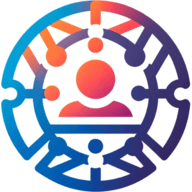Welcome to our deep dive into the latest trends that are shaping the staffing industry. As we navigate through the ever-evolving landscape of recruitment and human resources, we'll uncover the key shifts that are revolutionizing the way businesses hire and manage talent. From technological advancements to changes in workforce preferences, this comprehensive guide will provide you with the insights you need to stay ahead in the competitive staffing industry.
The Rise of Remote Work
The global pandemic has undeniably accelerated the shift towards remote work. Companies are now more open to hiring remote staff, recognizing the benefits of a flexible workforce. This trend has significant implications for the staffing industry.
The traditional boundaries of hiring have been dismantled. Businesses are no longer limited to their local talent pool. They can now access a global network of professionals, expanding their search for the perfect candidate. This shift has increased the demand for staffing agencies that can manage international recruitment processes.
However, remote work also presents new challenges. Staffing agencies need to adapt their strategies to screen and assess candidates effectively. They must consider factors such as time zone differences, cultural nuances, and remote work capabilities.
Technological Advancements in Recruitment
Technology continues to revolutionize the staffing industry. Artificial Intelligence (AI) and Machine Learning (ML) are now integral parts of the recruitment process. These technologies automate repetitive tasks, allowing recruiters to focus on more strategic aspects of their job.
AI-powered chatbots are becoming increasingly popular. They provide immediate responses to candidate inquiries, improving the candidate experience. They can also pre-screen candidates, saving recruiters valuable time.
Moreover, predictive analytics is another trend gaining traction. It uses historical data to predict future hiring needs, helping companies to plan their recruitment strategies more effectively.
The Importance of Employer Branding
Employer branding has emerged as a crucial aspect of recruitment. A strong employer brand attracts high-quality candidates and reduces hiring costs. It also improves employee retention, as employees are more likely to stay with a company they perceive positively.
Staffing agencies play a crucial role in shaping a company's employer brand. They are often the first point of contact for candidates, and their interactions can significantly influence a candidate's perception of the company.
To enhance employer branding, staffing agencies need to ensure a positive candidate experience. This includes clear communication, timely feedback, and a smooth hiring process.
The Shift Towards Skills-Based Hiring
The staffing industry is witnessing a shift towards skills-based hiring. Companies are now prioritizing a candidate's skills and potential over their formal qualifications. This trend reflects the changing nature of work, with new roles emerging that did not exist a few years ago.
Staffing agencies need to adapt their recruitment processes to this trend. Traditional methods of screening candidates, such as reviewing resumes and conducting structured interviews, may not be sufficient. Instead, they need to incorporate assessments that can accurately measure a candidate's skills and potential.
The Growing Focus on Diversity and Inclusion
Diversity and inclusion have become top priorities for businesses. A diverse workforce brings a variety of perspectives, fostering innovation and improving decision-making. Moreover, companies that prioritize diversity and inclusion are more attractive to candidates.
Staffing agencies play a crucial role in promoting diversity and inclusion. They need to ensure their recruitment processes are unbiased and inclusive. This includes using inclusive language in job descriptions and providing diversity training for recruiters.
The Emergence of Gig Economy
The gig economy is on the rise, with more professionals opting for freelance or contract work. This trend provides businesses with a flexible workforce that can be scaled up or down based on their needs.
For staffing agencies, this trend presents both opportunities and challenges. On one hand, it increases the demand for their services, as companies need help managing their contingent workforce. On the other hand, it requires them to adapt their services to cater to the unique needs of gig workers.
Navigating the Future of the Staffing Industry
As we've explored, the staffing industry is undergoing significant changes. From the rise of remote work to the growing focus on diversity and inclusion, these trends are reshaping the way businesses hire and manage talent. By staying abreast of these trends, staffing agencies can position themselves for success in the evolving staffing landscape.

